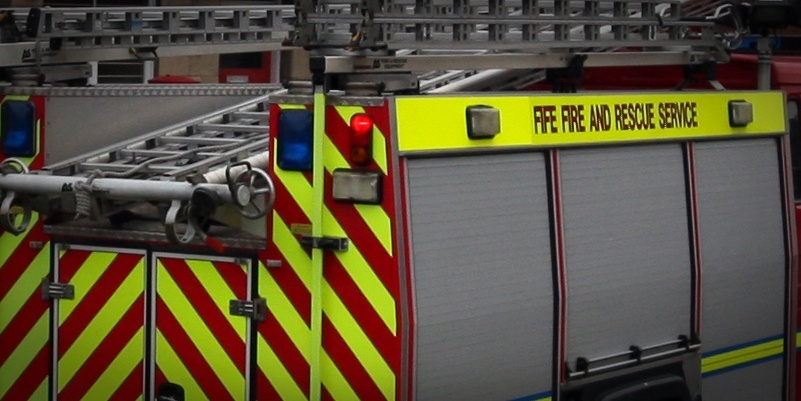The number of bogus calls to the fire service in Fife has fallen by 13% in the last year.
There were 113 hoax calls in the 12 months from March 31 2011, down from 130 the previous year.
Fife Fire and Rescue Service also revealed police arrested four bogus callers as a result of investigations prompted by complaints made by call handlers.
Convicted hoax callers can be fined £5,000 or face custodial sentences of up to three months.
Community safety crew manager Ian Dempsey said: ”All 999 calls are recorded and we now have the technology to trace all calls, even those from mobile phones.
”We could have your phone cut off and might even take you to court so expect someone to come knocking at your door if you make hoax calls.”
The number of hoax calls is thought to have fallen in the last year following the launch of a programme of education, which was prompted by a sharp rise from 88 calls in 2009/10 to 130 in 2010/11.
Ian Dempsey said: ”We react to hoax calls so if we receive hoax calls in a specific area then we target the local schools in that area and educate them on the risks of making a hoax call.
”If we have identified the hoax caller, then we speak to their parents and work closely with the police to prosecute.”
Fife Fire and Rescue Service also produced a DVD, which has been handed out to school pupils.
Ian Dempsey said: ”The DVD aims to highlight the serious consequences of hoax calling. Whilst we are attending these hoax calls, a house fire or road traffic collision could be developing elsewhere.
”This could cost precious seconds and minutes, which could put lives in our communities at risk. We hope that our DVD on hoax calls has been making an impact.”
Fire Brigades Union Fife branch secretary Scott McCabe said: ”There’s been a significant education programme driven by FBU members. Firefighters on the ground have gone into schools and there’s been a great response to the DVD.
”Running alongside that is the work that’s done in control. Staff are given specialist training in how to work out whether people are bogus callers.
”This combination of education and training has delivered the reduction. This means that fire engines are not deployed if they’re not required and they remain available to deal with real emergencies.”
